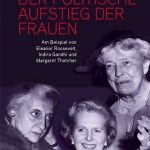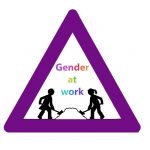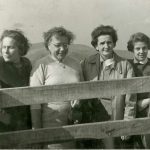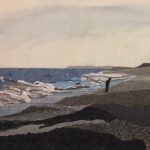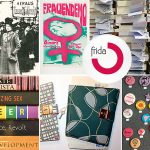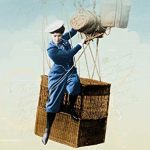 „Geschichten aus der Geschichte“: Richard Hemmer und Daniel Meßner (Web)
„Geschichten aus der Geschichte“: Richard Hemmer und Daniel Meßner (Web)
„Vergessene Ereignisse, überraschende Anekdoten und Zusammenhänge kurz erklärt. Häufig mit ein ganz bisschen Augenzwinkern – aber immer knallhart und quellennah recherchiert“ lautet die Beschreibung des Podcasts – die bereits zeigt, dass die beiden Macher mit Vergnügen – und auch mit Humor – bei der Sache sind.
Den ersten Beitrag haben Richard Hemmer und Daniel Meßner (Wien und Hamburg) im September 2015 ausgestrahlt. Inzwischen sind rund 290 Episoden zusammengekommen.
Neuer Name
Bis Herbst 2020 war der Titel des Podcasts „Zeitsprung. Geschichten aus der Geschichte“. Wegen eines Urheber:innenrechtsstreits mußte der Titel aufgegeben werden. Jetzt heißt der Podcast nur noch „Geschichten aus der Geschichte“ – sonst hat sich aber nichts geändert. Link zu allen bisher ausgestrahlten Episoden (Web)
Episoden mit u.a. geschlechterhistorischem Fokus:
[Stand Anfang 2021]
- GAG287: Eine kurze Geschichte des Ballonfahrens und Fallschirmspringens (Link)
- GAG286: Die verschwundenen Seefrauen Islands (Link)
- GAG283: Lola Montez (Link)
- GAG282: Fredegund, Brunhild und der merowingische Bruderkrieg (Link)
- GAG271: Caroline Neuber und der Hanswurststreit (Link)
- GAG269: Monika Ertl und ein Mord im Generalkonsulat (Link)
- GAG265: Syphilis und die Tuskegee-Syphilis-Studie (Link)
- GAG264: Seondeok, erste Königin Koreas (Link)
- Krankenbetten und Dauerbäder: Ein Zeitsprung-Extra mit Monika Ankele über Psychiatriegeschichte (Link)
- ZS257: Alexander von Humboldt – Bugtales.FM Crossover (Link)
- ZS252: Harvard Computers – Wie Astronominnen die Sterne neu sortierten (Link)
- ZS234: Das bekannteste Parfüm der Welt und seine russische Vorgeschichte (Link)
- ZS229: Elisabeth Báthory. Die (angebliche) Blutgräfin (Link)
- ZS227: Die unsterbliche Henrietta Lacks (Link)
- ZS214: Hedy Lamarr. Hollywoodstar und Erfinderin (Link)
- ZS202: Über Continue reading


